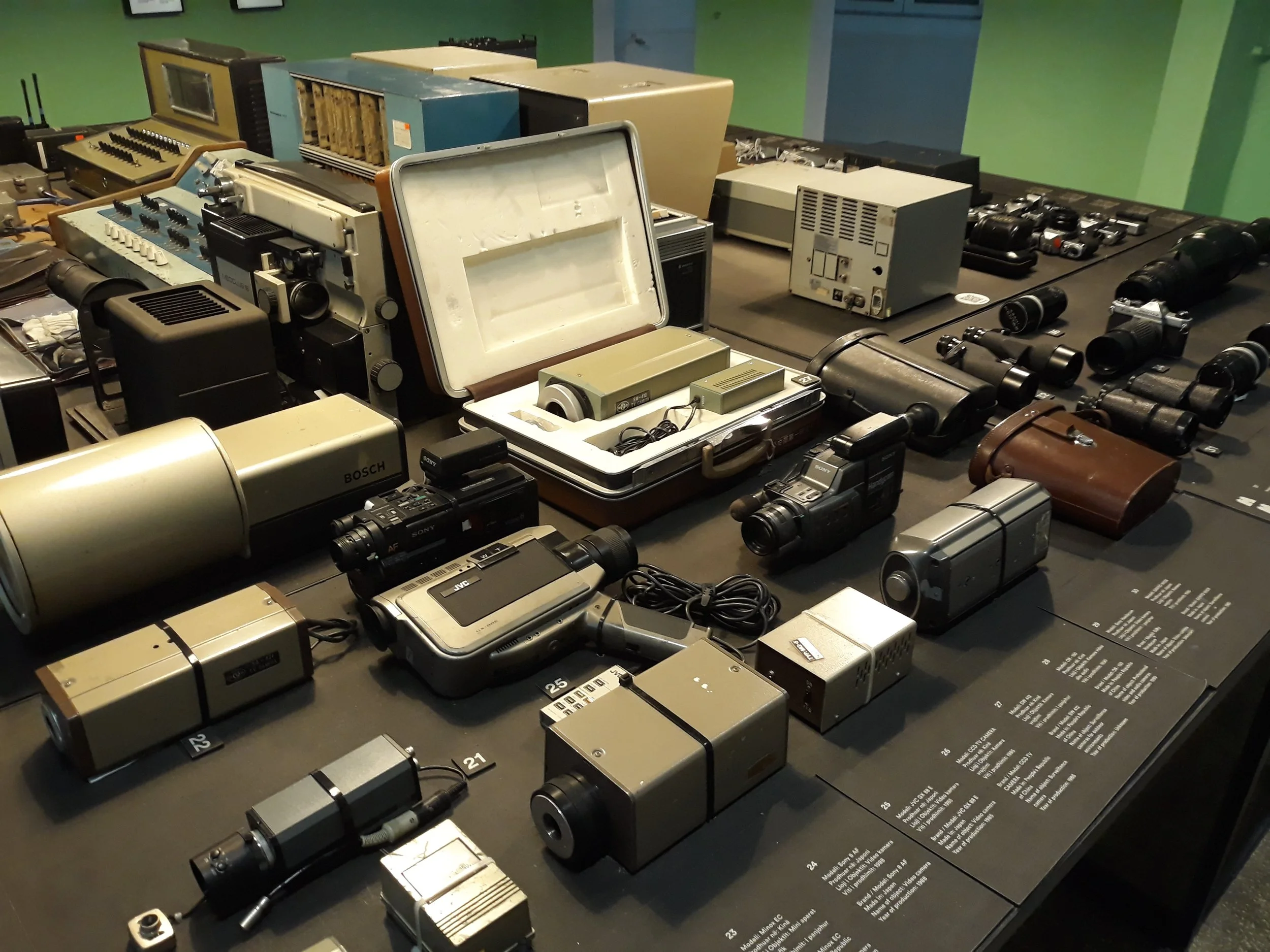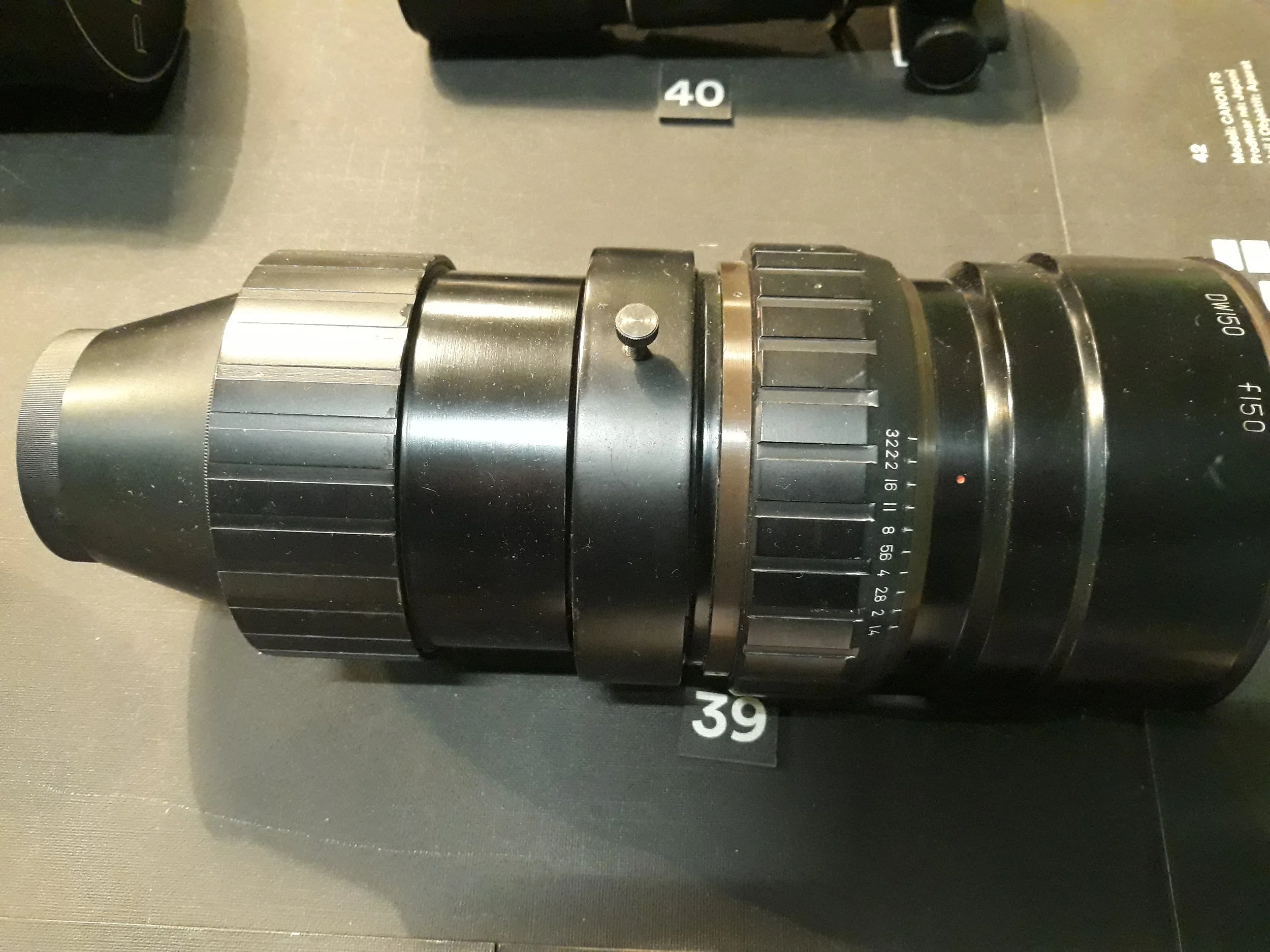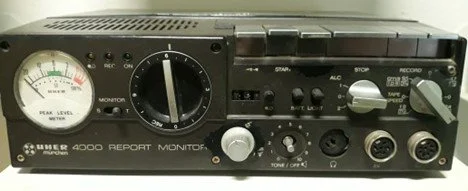It’s an impressive display of audio, camera and video gear that was once state-of-the art. Until, that is, the art changed. All the familiar brand names—Sony, Panasonic, Sanyo, JVC, Canon, Nikon—and even Realistic, the Radio Shack store brand. Tabletop cassette recorders with large mechanical buttons for play, record, pause, fast forward and rewind. Bulky camcorders and clunky-looking microphones. Weighty telephoto lenses.
It’s as if someone cleaned out the miscellaneous electronics shelves of a dozen Goodwill thrift stores and brought everything together for a major, invitation-only yard sale for technology buffs who wish everything was still analog. Ah, the good old days when magnetic tape moved across record and play heads.
Only it’s much more sinister than that. These are all devices that Albania’s Sigurimi—the feared state security service—used to spy on suspected enemies of the communist regime. For almost half a century, from 1944 to the fall of the regime in 1991, the Sigurimi monitored the activities and communications of ordinary citizens suspected of subversive activities, black marketeering or simply of telling a bad joke about the regime. One branch of the Sigurimi was tasked with surveillance of diplomats and the few foreigners who were allowed to visit on organized tours.
Agents planted bugs, installed secret microphones and cameras in the walls of apartments and offices, tapped telephone lines, intercepted mail, and trailed suspects on foot or in unmarked cars. A network of paid informants added to the so-called intelligence, some using their cozy relationship with the regime to settle scores with neighbors or estranged family members.
In a paranoid system where “enemies of the people” lurked everywhere, it was often enough to just make an accusation. The Sigurimi would interrogate and sometimes torture the suspect. After a summary trial, the enemy of the state would be publicly denounced—a not-so-subtle message to family and friends to toe the party line—then sent to one of the notorious labor camps to build roads and railroads, or work in factories and mines. Many died from starvation, heat exhaustion, or disease.
The surveillance devices, and other records and artifacts from the archives of the Ministry of Internal Affairs, to which the Sigurimi reported, are brought together in a remarkable exhibition at what was until 1991 the agency’s headquarters, a former maternity clinic. It was known as the House of Leaves, because, on a busy street in the center of Tirana, it was always eerily quiet, except for the rustle of fallen leaves in the garden. It was, to quote from one exhibit caption, “The place from where you can see and hear everything.”
For the first 20 years, the Sigurimi used audio tape recorders and microphones supplied by the Soviet Union, only a few of which have survived. After the break with Khrushchev, the new communist ally, Mao Tse-Tung’s China, supplied camera gear such as this telephoto lens, but did not produce the quality of audio and video equipment needed for surveillance.
When Albania broke with China in 1978, declaring itself “the only socialist state in the world,” even that supply line dried up. Where could the Sigurimi acquire new equipment? From the capitalist West, of course. One wall of the exhibit room displays rows of German-made Uher reel-to-reel recorders, a sturdy and sophisticated model that I used when I worked at the University of Kansas public radio station in the late 1970s.
Of course, the Sigurimi did not send bulk purchase orders to manufacturers or wholesalers. Their agents, stationed in Western European countries to monitor the activities of opposition figures and dissidents, simply went shopping with hard currency for consumer and professional quality equipment.
You can’t blame the technology; the issue is the purpose for which it was used. In the West, the same cassette recorders and camcorders were being used to record music, tape radio programs off-air, and shoot family celebrations. Western governments could not control what Sigurimi agents bought on the high street or at the mall and the dealings were all in cash. If a store clerk was curious, the agent would simply and disarmingly say he wanted to buy the best-quality camcorder on the market so his family would have a lasting memory of daughter’s wedding. Just like any other family.







